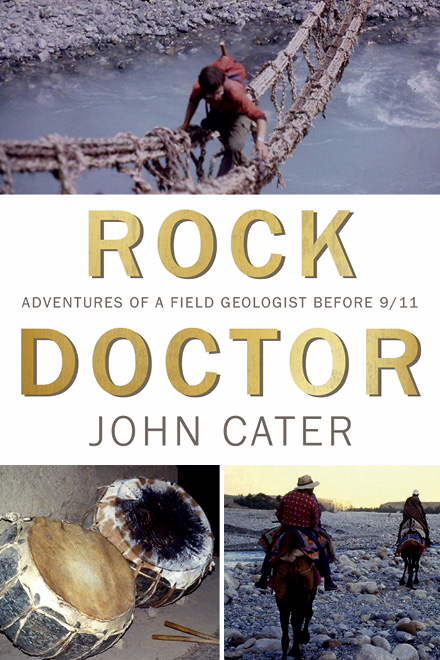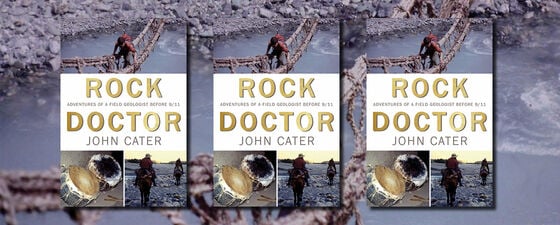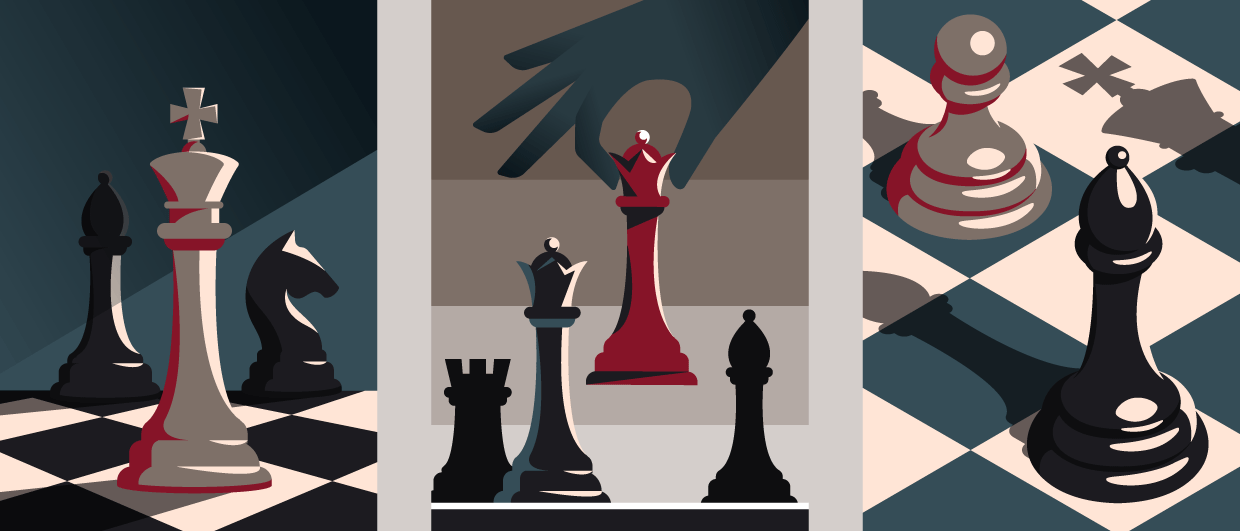 Rock Doctor: Adventures of a Field Geologist Before 9/11 is available as an e-book through amazon.com (Image credit: John Carter)John Cater has led a fascinating and eventful life, wielding hammer and compass-clino in some of the most inaccessible corners of the globe and having the sorts of adventures many of us envisaged our geological careers might involve – before computers and security concerns transformed the world. Realising how much changed when, in his words, “those planes hit the Twin Towers and brought our simple, carefree world of tolerance crashing down”, he has written this book to try to record for posterity the fun, freedom, excitement, boredom, exhilaration and at times sheer terror that came with being a field geologist in the days before satnavs, mobile phones and 24/7 communication.
Rock Doctor: Adventures of a Field Geologist Before 9/11 is available as an e-book through amazon.com (Image credit: John Carter)John Cater has led a fascinating and eventful life, wielding hammer and compass-clino in some of the most inaccessible corners of the globe and having the sorts of adventures many of us envisaged our geological careers might involve – before computers and security concerns transformed the world. Realising how much changed when, in his words, “those planes hit the Twin Towers and brought our simple, carefree world of tolerance crashing down”, he has written this book to try to record for posterity the fun, freedom, excitement, boredom, exhilaration and at times sheer terror that came with being a field geologist in the days before satnavs, mobile phones and 24/7 communication.
John graduated with a BSc in Geology with Astronomy from Leicester University in 1980 before moving to Birmingham to study Neogene carbonate gravity-flows, being awarded his PhD in 1984 – hence his titular joke about a ‘rock doctor’. The earliest stories in his book stem from 1985, when, as a research assistant at Edinburgh University, he went to central Turkey as a consultant sedimentologist for the international fieldwork organisation ESRI and had his first introduction to the Middle East. For the next 14 eventful years, he travelled in India, Pakistan, Oman, Yemen, Syria, Turkey, Azerbaijan and Russia on behalf of ESRI, trying, as he says, “to identify areas where economic oil and gas resources were least likely to be found”.
Lucky Escapes
The stories, which are entertainingly and amusingly recounted, include encounters with the local wildlife, varying from 4m-long snakes and deadly scorpions to slavering Anatolian Shepherd Dogs and flatulent horses. The various methods of transport required, and their associated dangers are also described, including recalcitrant camels, unreliable pickup trucks and wild helicopter rides, not forgetting many miles up and down steep rock faces on foot.
Many of the areas where John worked were almost war zones, so encounters with security forces and their opponents feature in some of the scariest anecdotes; in retrospect, John considers that he had some lucky escapes – not that he and his colleagues were necessarily aware of it at the time. He admits that: “field geologists could be blissfully ignorant of political reality, even when exploring the borders of Lebanon, Yemen or Pakistan. We got by with a few armed guards to keep any bandits at bay and a willingness to meet the locals on equal terms.”
Important to John’s story are his varied travelling companions, many of whom are locals. Some are highly knowledgeable geologists and some trainees just starting out, while his most interesting conversations tend to be with drivers, porters, security guards and local headmen, all of whom give him fascinating insights into the culture and traditions of life in their homeland. They also introduce him to some interesting culinary experiences: boiled goat’s head soup (with eyes), anyone? His ESRI colleagues are an eclectic bunch, each with their geoscience specialities and personal traits; I was particularly interested in ‘The Boss’; the feared and revered structural geologist Alison, who deserves her own book, if she hasn’t already written it. (If you have Alison, let me know, as I would love to read it!)
Entertaining Insight
As this is a book involving fieldwork, John obviously must talk about his work and, assuming that not all his readers are geologists, he attempts to briefly explain the geological issues involved, which he does very well, helped by the inclusion of a number of photographs and maps. He also touches on some fascinating archaeological sites he came across, such as the 9,000-year-old ruins at Mehrgarh in Pakistan, the remains of Alexander the Great’s cities in Turkey and the wonderful antiquities in Syria, many now sadly destroyed. John is keen that a wide range of people read his book to learn about geologists’ “pioneering but sometimes misguided journeys”. I can recommend it as an entertaining insight into a life that in many ways is no longer possible. It is about the adventures of a 20- to 30-something young man, and at times seems a little ‘blokey’ – but to write it in any other way would not be true to the story. He comes across as a likeable, self-deprecating guide who describes well and with awe the stunning places he has seen, gives some interesting little geological and historical asides and who, above all, can tell a good tale.
Rock Doctor: Adventures of a Field Geologist Before 9/11 is available as an e-book through amazon.com





